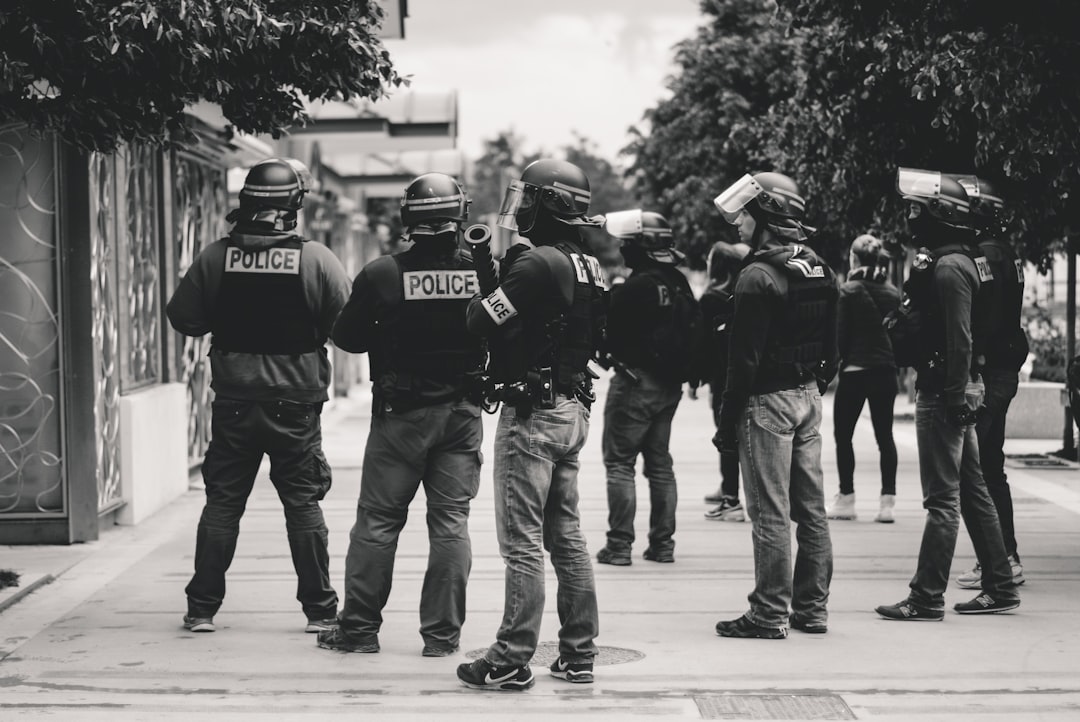A bail bondsman is a person or agency that provides bail bonds to individuals who have been charged with a crime but cannot afford the bail amount set by the court. They play a crucial role in the criminal justice system, ensuring that defendants can maintain their freedom while awaiting trial.
Use The Search Box Below To Find Bail Bondsman Near You With Reviews:
Importance of Locating a Bail Bondsman Near Me
Finding a local bail bondsman is essential for several reasons. First, they are familiar with the local laws and procedures. Second, they can respond quickly when their services are needed, and lastly, communication and coordination tend to be easier.
II. Understanding Bail Bonds
Explanation of Bail Bonds and How They Work
A bail bond is a type of surety bond that guarantees the court that the defendant will appear at all required court proceedings. The bail bondsman typically charges a fee, usually 10-15% of the total bail amount, in exchange for posting the bail.
Benefits of Using a Bail Bondsman
Using a bail bondsman can save you from having to come up with the full bail amount. They also have knowledge and experience with the bail process, which can help expedite the defendant’s release.
III. Factors to Consider When Choosing a Bail Bondsman
Experience and Reputation
Look for a bail bondsman with years of experience and a solid reputation in the community. They should have a track record of successful bail postings and satisfied clients.
Availability and Accessibility
Your bail bondsman should be available 24/7 and ready to assist whenever needed. They should also be easily reachable through multiple channels, such as phone, email, or in-person meetings.
Licensing and Accreditation
Ensure your bail bondsman is licensed to operate in your state and holds any necessary accreditations from professional organizations.
IV. Researching Bail Bondsmen Near Me
Utilizing Online Directories and Search Engines
Start your search online, where you can find directories and listings of bail bondsmen in your area.
Reading Reviews and Testimonials
Online reviews and testimonials can provide insight into a bail bondsman’s reliability, professionalism, and customer service.
Seeking Recommendations from Friends and Family
Personal recommendations can often be the most trustworthy. Ask around to see if anyone you know has had a good experience with a local bail bondsman.
V. Questions to Ask Potential Bail Bondsmen
Pricing and Payment Options
Ask about the bail bondsman’s fees and what payment options they accept. Some may offer payment plans or other financing options.
Terms and Conditions of the Bail Bond
Make sure you understand the terms and conditions of the bail bond, including your responsibilities as the indemnitor.
Timeframe for Release
Ask how long it typically takes for them to get someone released from jail once the bail has been posted.
VI. Comparing Bail Bondsmen Near Me
Evaluating Services and Offerings
Consider the overall value of what each bail bondsman has to offer, including their fees, services, and customer service.
Assessing Customer Service and Responsiveness
A good bail bondsman will be responsive to your needs and able to answer your questions promptly and thoroughly.
Reviewing Track Record and Success Rate
Take a look at each bail bondsman’s history and success rate. This includes their track record with getting clients released and their overall reputation in the industry.
VII. Making the Final Decision
Weighing the Pros and Cons
After gathering all the necessary information, weigh the pros and cons of each bail bondsman.
Trusting Your Instincts
Finally, trust your instincts. Choose the bail bondsman that feels right to you, based on your interactions and the information you’ve gathered.
VIII. Conclusion
Recap of the Importance of Locating a Bail Bondsman Near Me
Locating a reliable, local bail bondsman is critical when dealing with legal troubles. They can provide financial assistance, simplify the bail process, and offer peace of mind during a difficult time.
Encouragement to Conduct Thorough Research and Select the Right Bail Bondsman for Your Needs
Remember, choosing a bail bondsman is an important decision. Take your time, do your research, and choose the one who best meets your needs and circumstances.
FAQs
1. What is a Bail Bondsman?
A bail bondsman is an individual or company that provides bail bonds for people who have been charged with a crime but cannot afford the bail amount set by the court.
2. How Does a Bail Bondsman Work?
A bail bondsman works by charging a fee, usually 10-15% of the total bail amount, to post bail on behalf of the defendant. In return, they guarantee that the defendant will appear in court for all required proceedings.
3. Why Should I Use a Bail Bondsman?
Using a bail bondsman can save you from having to pay the full bail amount out of pocket. They also have experience and knowledge of the bail process, which can expedite the defendant’s release.
4. How Do I Find a Reliable Bail Bondsman Near Me?
You can find a reliable bail bondsman by doing online research, reading reviews and testimonials, and asking for personal recommendations. Make sure to check their experience, reputation, availability, and licensing.
5. What Questions Should I Ask a Potential Bail Bondsman?
You should ask about their fees, payment options, terms and conditions of the bail bond, and the typical timeframe for release after the bail has been posted.
6. What are the Responsibilities of the Indemnitor?
The indemnitor is responsible for ensuring the defendant appears in court. If the defendant fails to appear, the indemnitor may be responsible for paying the full bail amount.
7. What Happens if the Defendant Doesn’t Show Up in Court?
If the defendant doesn’t show up in court, the bail bondsman may lose the bail money they posted. They will then attempt to locate and return the defendant to custody, or they may seek repayment from the indemnitor.
8. Can a Bail Bondsman Arrest the Defendant?
In some states, bail bondsmen have the authority to arrest the defendant if they fail to appear in court. This is because the bail bondsman is responsible for the defendant until their case is resolved.
9. How Long Does it Take for a Bail Bondsman to Get Someone Out of Jail?
The time it takes for a bail bondsman to get someone out of jail can vary widely, depending on factors like the complexity of the case and the speed of the local court system. However, in many cases, a bail bondsman can get someone released within a few hours.
10. Can I Get My Money Back After the Case is Over?
The fee you pay to a bail bondsman is non-refundable, even if the case is dismissed or the defendant is found not guilty. This fee is the cost of the bail bondsman’s services and is separate from the bail amount.
Bail Bondsman Laws By States
Alabama
In Alabama, bail bondsmen are regulated by the Alabama Department of Insurance. All bail bondsmen must be licensed and follow regulations set by the state.
Alaska
Alaska does not allow private bail bondsmen. Instead, defendants have the option to post a percentage of the bail amount directly to the court.
Arizona
Arizona allows commercial bail bonds. Bail bondsmen are licensed and regulated by the Arizona Department of Insurance.
Arkansas
In Arkansas, bail bondsmen are regulated by the Arkansas Professional Bail Bondsman Licensing Board. They must meet specific requirements to obtain and maintain licensure.
California
California allows commercial bail bonds. The state’s Department of Insurance regulates bail bondsmen, and they must charge filed rates.
Colorado
In Colorado, bail bondsmen are regulated by the Division of Insurance within the Department of Regulatory Agencies. They must meet specific requirements to obtain and maintain licensure. More info can be found at the Colorado Division of Insurance website.
Connecticut
Connecticut allows commercial bail bonds. Bail bondsmen are licensed and regulated by the Connecticut Insurance Department. More information can be found on the Connecticut Insurance Department website.
Delaware
Delaware allows for the operation of commercial bail bonds. Bail bondsmen are licensed and regulated by the Delaware Department of Insurance. You can find more information on the Delaware Department of Insurance website.
Florida
Florida allows commercial bail bonds. The state’s Department of Financial Services regulates bail bondsmen, and they must charge filed rates. For more details, visit the Florida Department of Financial Services website.
Georgia
Georgia allows commercial bail bonds. Bail bondsmen are licensed and regulated by the Georgia Insurance and Safety Fire Commissioner. More info can be found on the Georgia Insurance and Safety Fire Commissioner website.
Hawaii
In Hawaii, bail bondsmen are regulated by the Department of Commerce and Consumer Affairs. More information can be found on the Hawaii DCCA website.
Idaho
Idaho allows commercial bail bonds. Bail bondsmen are licensed and regulated by the Idaho Department of Insurance. More details can be found on the Idaho Department of Insurance website.
Illinois
Illinois does not allow private bail bondsmen. Instead, defendants have the option to post a percentage of the bail amount directly to the court. You can find more about this on the Illinois Courts website.
Indiana
Indiana allows for the operation of commercial bail bonds. Bail bondsmen are licensed and regulated by the Indiana Department of Insurance. More info can be found on the Indiana Department of Insurance website.
Iowa
Iowa does not permit private bail bondsmen. Instead, bail is managed through the court system. More details can be found on the Iowa Judicial Branch website.
Kansas
In Kansas, bail bondsmen are regulated by the Kansas Insurance Department. More information can be found on the Kansas Insurance Department website.
Kentucky
Kentucky does not allow private bail bondsmen. Instead, defendants have the option to post a percentage of the bail amount directly to the court. You can find more about this on the Kentucky Courts website.
Louisiana
Louisiana allows commercial bail bonds. Bail bondsmen are licensed and regulated by the Louisiana Department of Insurance. More details can be found on the Louisiana Department of Insurance website.
Maine
Maine does not permit private bail bondsmen. Instead, bail is managed through the court system. More information can be found on the Maine Judicial Branch website.
Maryland
Maryland allows for the operation of commercial bail bonds. Bail bondsmen are licensed and regulated by the Maryland Insurance Administration. More info can be found on the Maryland Insurance Administration website.
Massachusetts
Massachusetts does not allow private bail bondsmen. Instead, bail is managed through the court system. More information can be found on the Massachusetts Court System website.
Michigan
Michigan allows commercial bail bonds. Bail bondsmen are licensed and regulated by the Michigan Department of Insurance and Financial Services. More details can be found on the Michigan DIFS website.
Minnesota
In Minnesota, bail bondsmen are regulated by the Minnesota Department of Commerce. More information can be found on the Minnesota Department of Commerce website.
Mississippi
Mississippi allows commercial bail bonds. Bail bondsmen are licensed and regulated by the Mississippi Insurance Department. More info can be found on the Mississippi Insurance Department website.
Missouri
Missouri allows for the operation of commercial bail bonds. Bail bondsmen are licensed and regulated by the Missouri Department of Insurance, Financial Institutions and Professional Registration. More details can be found on the Missouri DIFP website.
Montana
Montana allows commercial bail bonds. Bail bondsmen are licensed and regulated by the Montana Commissioner of Securities and Insurance. More information can be found on the Montana Commissioner of Securities and Insurance website.
Nebraska
Nebraska does not allow private bail bondsmen. Instead, defendants have the option to post a percentage of the bail amount directly to the court. You can find more about this on the Nebraska Judicial Branch website.
Nevada
Nevada allows for the operation of commercial bail bonds. Bail bondsmen are licensed and regulated by the Nevada Division of Insurance. More details can be found on the Nevada Division of Insurance website.
New Hampshire
In New Hampshire, bail bondsmen are regulated by the New Hampshire Insurance Department. More information can be found on the New Hampshire Insurance Department website.
New Jersey
New Jersey has largely eliminated cash bail, opting instead for a system that relies more on risk assessments. More details can be found on the New Jersey Courts website.
New Mexico
New Mexico has limited the use of commercial bail bonds. The state has moved towards a risk assessment system to determine whether a defendant should be released before trial. More information can be found on the New Mexico Courts website.
New York
In New York, bail bondsmen are regulated by the New York Department of Financial Services. More details can be found on the New York Department of Financial Services website.
North Carolina
North Carolina allows commercial bail bonds. Bail bondsmen are licensed and regulated by the North Carolina Department of Insurance. More info can be found on the North Carolina Department of Insurance website.
North Dakota
North Dakota does not permit private bail bondsmen. Instead, bail is managed through the court system. More information can be found on the North Dakota Courts website.
Ohio
Ohio allows for the operation of commercial bail bonds. Bail bondsmen are licensed and regulated by the Ohio Department of Insurance. More details can be found on the Ohio Department of Insurance website.
Oklahoma
In Oklahoma, bail bondsmen are regulated by the Oklahoma Insurance Department. More information can be found on the Oklahoma Insurance Department website.
Oregon
Oregon does not allow private bail bondsmen. Instead, bail is managed through the court system. More details can be found on the Oregon Judicial Department website.
Pennsylvania
Pennsylvania does not permit private bail bondsmen. Instead, bail is managed through the court system. More information can be found on the Pennsylvania Unified Judicial System.
Rhode Island
Rhode Island allows commercial bail bonds. Bail bondsmen are licensed and regulated by the Rhode Island Department of Business Regulation. More info can be found on the Rhode Island Department of Business Regulation website.
South Carolina
South Carolina allows for the operation of commercial bail bonds. Bail bondsmen are licensed and regulated by the South Carolina Department of Insurance. More details can be found on the South Carolina Department of Insurance website.
South Dakota
South Dakota allows commercial bail bonds. Bail bondsmen are licensed and regulated by the South Dakota Division of Insurance. More information can be found on the South Dakota Division of Insurance website.
Tennessee
In Tennessee, bail bondsmen are regulated by the Tennessee Department of Commerce & Insurance. More details can be found on the Tennessee Department of Commerce & Insurance website.
Texas
Texas allows for the operation of commercial bail bonds. Bail bondsmen are licensed and regulated by the Texas Department of Insurance. More info can be found on the Texas Department of Insurance website.
Utah
Utah does not permit private bail bondsmen. Instead, bail is managed through the court system. More information can be found on the Utah Courts website.
Vermont
Vermont does not allow private bail bondsmen. Instead, bail is managed through the court system. More details can be found on the Vermont Judiciary website.
Virginia
In Virginia, bail bondsmen are regulated by the Virginia Department of Criminal Justice Services. More information can be found on the Virginia Department of Criminal Justice Services website.
Washington
Washington allows for the operation of commercial bail bonds. Bail bondsmen are licensed and regulated by the Washington State Department of Licensing. More info can be found on the Washington State Department of Licensing website.
West Virginia
West Virginia does not permit private bail bondsmen. Instead, bail is managed through the court system. More information can be found on the West Virginia Judiciary website.
Wisconsin
Wisconsin does not allow private bail bondsmen. Instead, bail is managed through the court system. More details can be found on the Wisconsin Court System website.
Wyoming
Wyoming allows commercial bail bonds. Bail bondsmen are licensed and regulated by the Wyoming Department of Insurance. More info can be found on the Wyoming Department of Insurance website.






